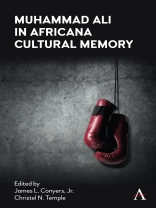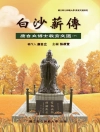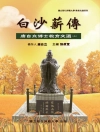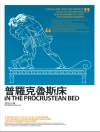One critical priority of the discipline of Africana studies is applied memory, specifically, how the record of the culture’s survival and agency reveals usable and reproducible knowledge and behavior. In terms of how Muhammad Ali, as an historical actor, has left an heroic legacy that bequeaths to us a sort of inheritance, the critical task at hand is to systematically explore this historical actor’s life, feats, philosophy, grit, worldview, and even his folkloric antihero to decipher his Africana cultural memory value. At the core of this edited collection is a commitment to enhance the cultural storytelling about Muhammad Ali and to critically itemize the lessons we garner from his life as allegory. The ancestral life is one that is remembered and recalled. The contributors’ research uncovers Ali’s local, national, and global encounters that are legacy worldviews. These perspectives give us direction for mining the critical depth of Ali’s encounters which map his memory in terms of culturally sustaining confidence, self-esteem, reinvention, immortalization, and empathy. These are the fertile seeds of Africana cultural memory which bloom into powerful markers and monuments of an epic life of hyperheroic activity relevant to cultural memory, sports, history, politics, health, and aesthetics.
Spis treści
List of Illustrations; Foreword; Preface; Acknowledgments; Chapter One “Something Greater than Pride”: Muhammad Ali and Black Cultural Mythology, Christel N. Temple; Chapter Two Muhammad Ali, the Nation of Islam, and Sport: The Grind of Spirituality, James L. Conyers Jr.; Chapter Three Muhammad Ali and the European Fabric of Domination, Molefi Kete Asante; Chapter Four Muhammad Ali as Skh, Wade W. Nobles; Chapter Five Let Us Make a Man: Muhammad Ali’s Reeducation through Critical Black Pedagogy, Abul A. Pitre, Ruby Holden-Pitre, and Natalie Williamson; Chapter Six The Challenge of Race and Religion in the United States: From Cassius Clay to Muhammad Ali; Bayyinah S. Jeffries; Chapter Seven Global Influence of Muhammad Ali’s Pan-Ethnic Vision and Conviction: Africa and Asia in the 1970s, Suzuko Morikawa; Chapter Eight Muhammad Ali’s Cuba Connections, Anju Reejhsinghani; Chapter Nine Muhammad Ali: The Greatest Advocate for Peace and Humanity, Rebecca Hankins; Chapter Ten Muhammad Ali, aka “The Greatest”: Demonstration of Ubuntu, Derek Wilson; Chapter Eleven Still the People’s Champ and Relevant in the Fight for Social Justice: Muhammad Ali’s Conversion of Athletic Capital into Sociopolitical Capital, Billy Hawkins; Chapter Twelve Influencing at the Intersections: Black Sportswomen’s Activism in the Era of Muhammad Ali, Akilah R. Carter-Francique; Chapter Thirteen Caring for the Minds of Our Heroes: A Brief Overview of Common Mental Health Impairments, Treatment Modalities, and Veteran Administration Resources, Karen E. Alexander, Ryan Moore, Jeanette Anderson, William Kouba, and Waveney La Grone; Chapter Fourteen The Complementary Duo of Sports and Activism: Critical Reflections on Muhammad Ali as a Formidable Athlete and Activist, Howard Bartee Jr.; Chapter Fifteen Nostra Aetate, Inshallah: Muhammad Ali in Community Dialogue with Catholic Communicators, Autumn Raynor; Chapter Sixteen Ali: Standing for Something, Brandon Allen; Chapter Seventeen Muhammad Ali and Health and Wellness, Angela Branch-Vital, Andrea Mc Donald, Park Esewiata Atatah, Catherine Kisavi-Atatah, and James L. Conyers Jr.; Conclusion; List of Contributors; Index.
O autorze
James L. Conyers, Jr., is Director of the African American Studies Program, Director of the Center for African American Culture, and University Professor of African American Studies at the University of Houston.
Christel N. Temple is Professor of Africana Studies at the University of Pittsburgh. She specializes in cultural memory and Pan-Africanism and has authored Black Cultural Mythology, Transcendence and the Africana Literary Enterprise, and Literary Pan-Africanism: History, Contexts, and Criticism.












